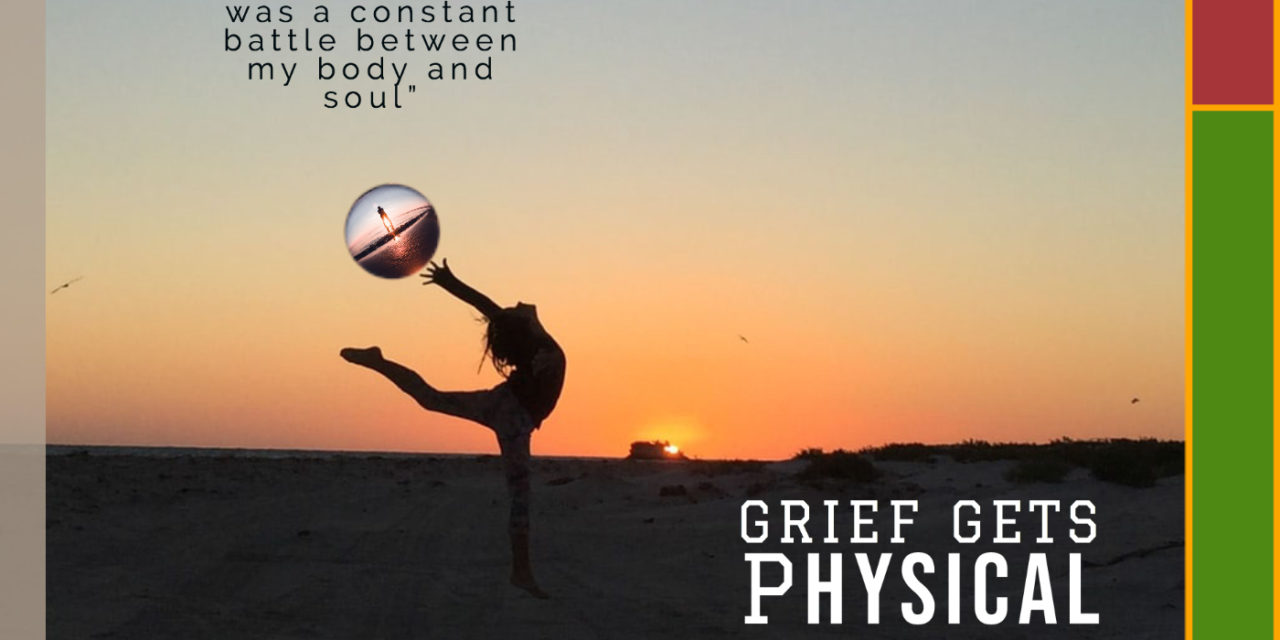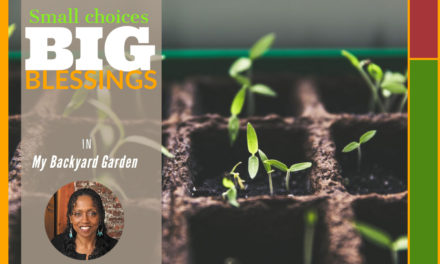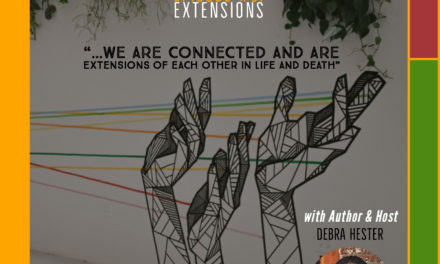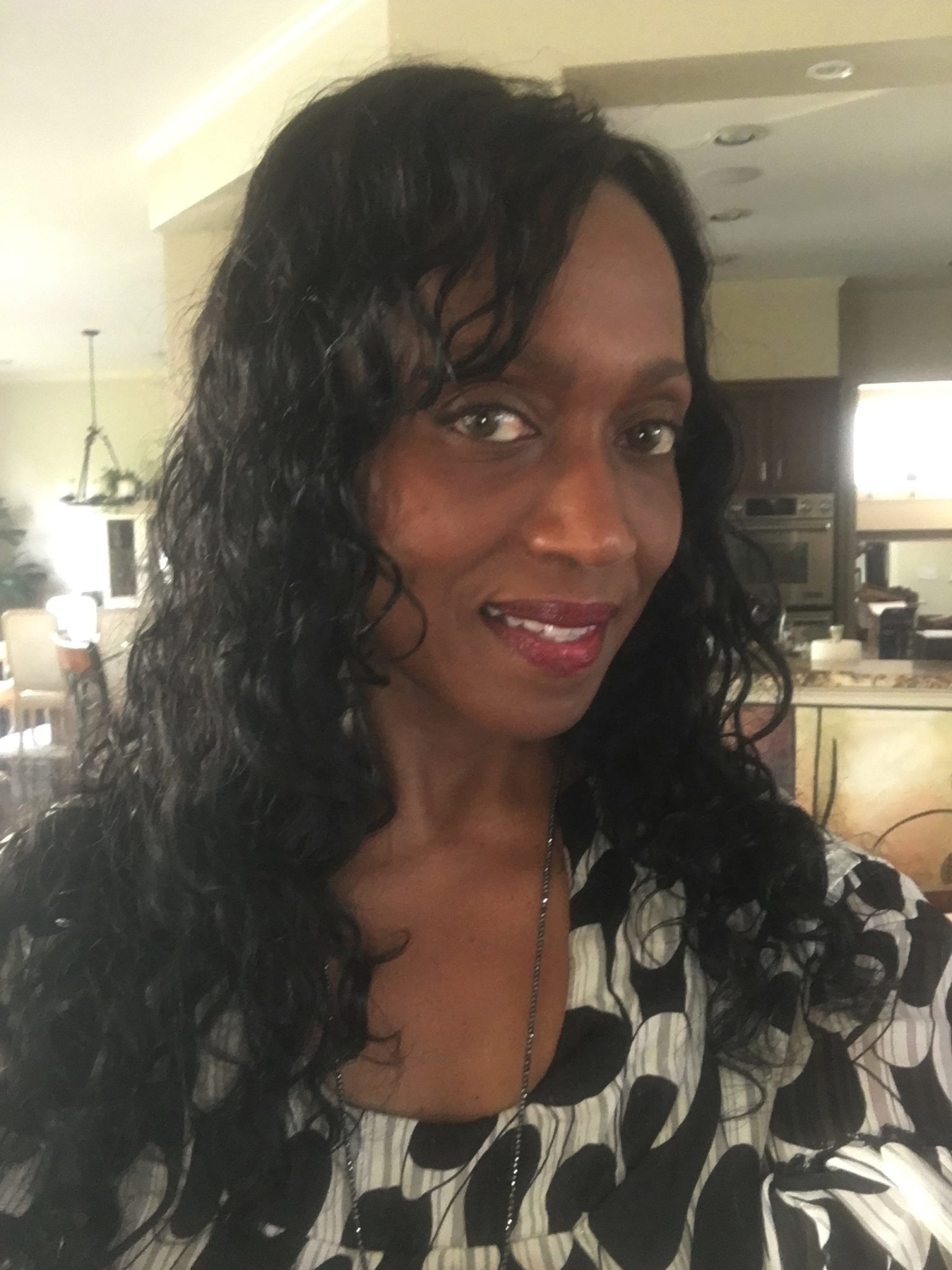Grief Gets Physical
Welcome to Mother’s Backyard Buzz and #empathyforgrief episode #15, where I want to focus on how grief can get physical. Each episode is all about “breaking the silent struggle” around grief and loss. My podcasts are based on my personal grief journey and reflections from my book: My Backyard Garden – A Memoir of How Love Conquers Grief. I share current insights into this life-changing journey called grief and loss. Thanks for joining me, Debra Hester, as the author and your host of #empathyforgrief podcast.
The First Physical Signs
In Chapter 1 – “A Change of Planes” in my book, my first sizeable emotional response to my mother being in ICU was delayed until I reached the airport. Once it hit me emotionally, my next reaction was a physical sign. I felt light-headed and weak in the knees after I got through security on my way to the gate. Now, who wants to faint? I don’t. And who wants to faint in public when you’re alone. So I found the nearest seat. Then I became nauseated. And that’s another thing I absolutely hate is vomiting.
So all I could think of was I need something to drink. No, it was not a glass of wine, it was mint tea from Starbucks. I knew that mint tea would calm my stomach and help me keep from vomiting in public. Question: Do you know what type of healthy foods help your body to stabilize and recover? If you don’t, I encourage you as a grief and loss survivor to thriver, learn, and use these healthy foods and beverages in your time of need.
Food Does a Body Good
Speaking of food, I enjoy cooking healthy meals and snacks. One of the reasons I enjoy cooking and entertaining is that I get lots of satisfaction from seeing how people enjoy not only the food but the experience. When tasty food is in the room, we talk about how great the food looks, smells, tastes, and makes us feel.
I believe food is the body’s medicine and is essential to our well being. Plus, food is social too. It can bring people together. Food is something we all share as humans. Even if we may have different appetites and may not like the same type of food, we all have to eat. Food is essential to our physical and mental health.
I consider myself a creative cook and love to experiment with different mixtures and recipes. When I was a child, I ate a variety of foods. I appreciate variety still. Recently, I’ve been obsessed with vegetables, especially roasted veggies. That’s funny because I can remember when comfort food was potatoes, pasta, and bread. Then it changed to blue corn tortilla chips and fresh salsa. But now my once comfort foods, makes me uncomfortable.
Some are born with food aversions, well I grew into mine. It’s not just the discomfort particular food causes me. I just can’t and have little genuine desire to eat how I once ate. So I ask you, do you have foods that make you feel good while others make you feel bad? Can you tell when that happens to you? I’ve learned to be aware of what I eat and drink over time and see the patterns of my reactions to those food choices.
Why do I share this awareness of food and how you react to it? Because this awareness applies to your appetite when you experience grief and loss. I’ve experienced this change in how I felt about food after a loss. Not just how I felt about food; but, food actually tasted different. I’ve found with grief in addition to emotions changing, you have physical signs from your body that respond to grief and loss. Loss or gain of appetite is one of the signs that grief gets physical.
After you’ve lost a loved one, you might reach for a cookie instead of an apple and wonder why. You may think I don’t care and then feel guilty that you don’t care. You might even eat your favorite chocolate chip cookie as I have and not get the same joy or taste from it. And like, I wondered, what has happened?
Vital Physical Changes
Grief and loss can extend beyond appetite and food too. Some days my body would actually feel heavier. I’m not talking about bloating or water weight gain. After waking up from a full night’s sleep, my body would feel tired. Stretching would provide some relief. But then, I would find myself clenching my jaw and biting my bottom lip. I would feel as if my whole body was heavier.
In my book, I mentioned it felt like my soul had sat down and it did. It felt like my body was now dragging around a soul that didn’t want to move, so there was a constant battle between the two. The struggle would result in aches and pains in new and unusual places. I don’t have underlying health issues, but there were times when I would feel tingling sensations running down my arms, my face, and legs as if I could feel the nerves under my skin. I found that all these physical reactions were grief and loss related. Upset stomach, nausea, headaches, migraines, yes, all from grief and loss.
I tell you because it is easy to think you have some type of undetectable physical illness. I did, and I started searching online for reasons based on my symptoms and believe me all kinds of diseases come up based on these symptoms. Not once did grief and loss come us as a possible cause.
I was reading a story about a young lady who lost her father while in college and then got ill with the flu. I wasn’t surprised. I have found that grief and loss can wear on our immune system. Our ability to fight off infections that we usually would are now reduced. So equipped with this awareness, I encourage you to take extra physical care of yourself when you’re experiencing grief and loss.
Here you are grieving the loss of a loved one, and now you feel like you have some unknown disease. It’s a huge load to carry all at once. As always, I encourage you to see your doctor if you don’t feel well physically. Loved ones, I’m here to remind you that you may not think about telling your doctor that you just lost a loved one, a job, or some other significant change in your life.
May is mental and behavioral health awareness month. This year’s campaign is #breakthestigma. Of course, I agree. As a society, we are beginning to realize the impact of grief and loss as a possible underlying condition for depression, so I’ll add #empathyforgrief and loss for yourself and others. Still, I haven’t had many medical doctors in my past that asked me about lifestyle changes. I hope doctors will start asking that in the future. However, now that I know the impact of lifestyle changes on my physical health, I have started to share my lifestyle changes with my doctors.
You Can Get Physical Too
I know you know I have to mention how exercise helps. And it really does help, but I had to find something physical that worked for me. I encourage you to do the same. Often when we say exercise, most of us, including myself, think of vigorous exercise like running or going to the gym. That’s all good, but it’s not the vigor as much as it is the rigor. OK, that rhymed, but what I mean by rigor is being strict about doing it regularly. Building a routine around the consistency of doing some exercise versus how much you do.
You know as you start to enjoy doing your favorite stretch, or movement, time passes by and you spend more time doing it. OK, all I’m trying to say is …it’s a Nike moment…so “Just Do It” on the regular.
The Final Physical
I hope you continue to remember that grief gets physical as well as emotional. The physical signs might throw you at first because our emotional responses are on overdrive and sporadic. So watch for these physical signs as our emotions go up and down. Our bodies, as well as our minds, react to grief and loss. Grief Gets Physical is all about the changes we are going through as we adjust to a different life and lifestyle. Now, when sorrow or anxiety from loss strikes, I’ll take a B-complex supplement or a warm shower or the combination of the two. My grief relief favorites are lavender-scented oil, warmed turkey, or Sleepy-time tea. I’m sure you have some favorite grief and loss relief remedies for our body when grief and loss get physical. So feel free to share your remedies with all of us on my social media sites.
As always, I want to thank you loved ones for listening to #empathyforgrief podcast episode #15, “Grief Gets Physical.” My podcasts are based on my book, My Backyard Garden – A Memoir of How Love Conquers Grief. My book is a quick read. It’s meant to capture and share the reality of life after loss and inspire reflection and conversation for those of us who are on this grief journey or know of someone who is.
This is Debra Hester, your host, where I pledge to continue to break the silent struggle with grief and loss. Remember: move forward with more empathy, less sympathy. If you found the podcast helpful, it’s available free on Mother’s Backyard Buzz blog at www.mothersbackyard.org.
We Are Extending Our Reach
Video versions of #empathyforgrief are available on YouTube at Mother’s Backyard Enterprise Channel. Please subscribe. The podcasts are available on some new podcast providers like TuneIn, Stitcher, and Himalaya, in addition to Spotify, Apple, Google, and iHeart.
#empathyforgrief podcasts are on FM radio with Force 3 Radio Network. Force 3 Radio streams online at www.force3radio.com airing the podcast now at 3 pm CST during their all inspirational music Sundays. I invite you to find out more about my mission at www.mothersbackyard.org/about-us/. Join me next week when we continue with Chapter 1 – “A Change of Planes” in my book, My Backyard Garden, A Memoir of How Love Conquers Grief. And the buzz will be about a “Portal to Another World”






